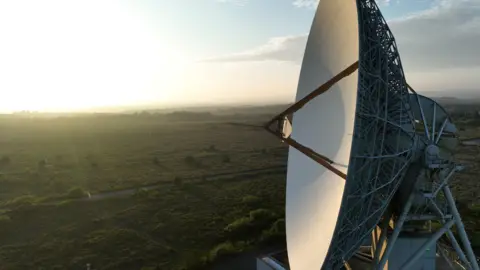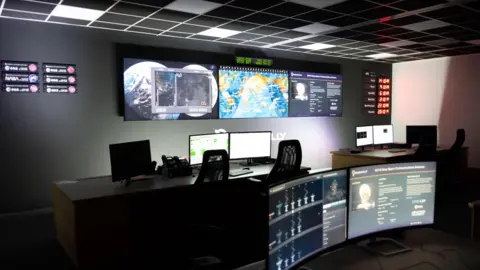Goonhilly in deep space communications deal
 Goonhilly Earth Station
Goonhilly Earth StationA Cornwall-based satellite and space company has signed a contract to provide communications with spacecraft on lunar missions and in deep space.
Goonhilly Earth Station's deal with the UK Space Agency and international partners is worth up to an initial £2m this financial year, said the UK government, which backed the deal.
Telecoms minister Sir Chris Bryant said it would see the station play a "vital role in supporting humanity’s next steps to the Moon and beyond".
Deep space is defined as more than 2 million km (1.2 million miles) from Earth. For comparison, the average distance from Mars to Earth is is 225 million km (140 million miles).
 Goonhilly Earth Station
Goonhilly Earth StationThe government said that, as the number of space missions beyond Earth orbit to destinations including the Moon increased, the capacity of existing services was reaching its limit.
It said, as a result, the UK was in a "unique position" to provide increased capacity through facilities such as Goonhilly.
Bryant said: "Just as digital infrastructure helps us stay connected here on Earth, this government-backed contract will play a vital role in supporting humanity’s next steps to the Moon and beyond."
Dr Paul Bate, chief executive of the UK Space Agency, said UK could benefit from the "nascent lunar and deep space economy".
Matthew Cosby, chief technical officer at Goonhilly, said: "As the demand for deep space communications continues to grow, this new contract enables us to expand our capacity, support more missions, and play a key role in the next chapter of space exploration."
Follow BBC Cornwall on X (formerly Twitter), Facebook and Instagram. Send your story ideas to [email protected].
